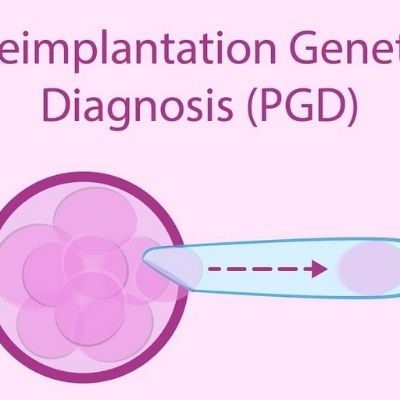Hereditary or genetic issues (contingent upon their seriousness) can have an overwhelming mental, social and financial effect on whole families. Numerous families watch their friends and family bearing devastating conditions and lose any hope of needing to begin their very own family, inspired by a paranoid fear of passing on the quality of gene that influenced their family for ages.
Pre-implantation Genetic Diagnosis (PGD) is a treatment that includes isolation of cells from a developing embryo and testing the cells for the hereditary issue or genetic abnormality. The wide-spread use of this procedure is generally new and research in this field is continuous and is growing increasingly to develop explicit and available tests that will help prevent adults from passing on detrimental conditions to their youngsters.
How We Can Test The Embryo For The Hereditary Issue?
PGD is employed for many monogenic disorders – scatters because of a transformation in the DNA of a single gene – including conditions, for example, cystic fibrosis and Huntington disease.
To reduce the danger of parents passing on a known hereditary issue or genetic disorder to their kids, in the past we built up a particular hereditary test for the particular hereditary condition and gene mutation for each couple. This methodology could take as long as a half year to finish, with extreme pressure experienced by the couple because of the waiting period and cost.
With karyomapping, holding up a very long time to set up a test for each couple is a thing of past now.
What Precisely Is Karyomapping?
Karyomapping is a solitary nucleotide polymorphism (SNP) test that uses a DNA fingerprinting method to recognize which embryo has acquired the altered gene.
DNA tests are gathered, typically by means of a straightforward blood or salivation test, from the couple and other relatives whose hereditary status for the infection is known. Primer testing of those samples utilizing Karyomapping permits a DNA fingerprint in the area of the defective gene to be resolved.
After this, as a major aspect of an IVF cycle, embryos are formed from the couple’s eggs and sperm. Cells are thoroughly removed from developing embryos and tested for the DNA unique fingerprint, uncovering those embryos that have acquired the modified gene. In the event that the unique fingerprint characteristics of the healthy incipient embryo is identified, at that point, the embryo is free of the hereditary issue and suitable for transfer to the woman’s womb during an IVF cycle.
Karyomapping provides data or information over the whole genome, which means we can recognize a portion of the chromosomal blunders or errors that cause implantation flaws and miscarriage. Karyomapping along these lines can possibly enable us to recognize the embryos that have the most obvious opportunity with regards to pregnancy achievement, which we expect will improve our live birth rates for couples getting into this treatment.
Reasons Why We Are The First To Offer Karyomapping In Hyderabad?
We have been trialling karyomapping for Oasis patients for around a year. The outcomes to the date demonstrate that karyomapping will be appropriate for most couples with a single gene issue.
The IVF PGD research facility around many countries has earned universal notoriety in the field of Preimplantation Genetic Diagnosis, in the wake of growing full karyotyping examination from a solitary cell in the late-1990s.
This brought about a world-first birth of a healthy infant from an embryo that had extensive chromosome testing. we were likewise the main fertility center to present Advanced Embryo Selection – which empowers each of the 24 chromosomes in a creating embryo to be thoroughly analyzed before implantation. This contributed to the developers of Karyomapping innovation (Illumina) to refine and approve Karyomapping before it becomes accessible to patients.
Should I Go For Karyomapping?
In the event that you realize you are a bearer of a hereditary issue and you don’t wish to pass this onto your kids, at that point Karyomapping might be a decent alternative for you.
It includes a meeting with our clinical hereditary qualities group. At that point, we should gather a DNA sample from you or any of your exclusive family member with which to plan for your treatment and affirm that Karyomapping is suitable. When this is resolved (just around 2 weeks to 1 month) your IVF treatment can start.
On the off chance that Karyomapping isn’t suitable for you, we will very likely still have the option to offer you PGD utilizing an alternate technique, which will be examined with you in advance.

